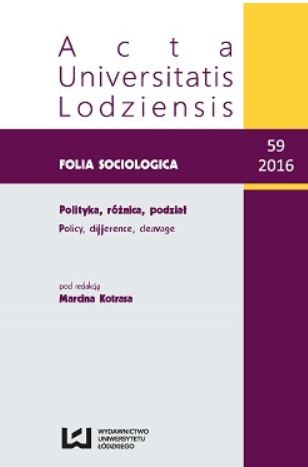Oczekiwania i motywacja transplantacyjna potencjalnych biorców kończyny górnej – teoretyczno-badawcze studium socjologii fenomenologicznej
Expectations and motivation for transplantation of potential upper limb recipients – phenomenological sociology theoretical and research study
Author(s): Katarzyna KowalSubject(s): Social Sciences, Sociology, Health and medicine and law
Published by: Wydawnictwo Uniwersytetu Łódzkiego
Keywords: limb transplantation; sociology of medicine; body experience; hand transplant
Summary/Abstract: Issues discussed in the paper are located on the borderline between sociology and medicine. The aim of the paper is to present expectations and motives of patients with the absence of hand with regard to their potential hand transplant surgery. These motives and expectations were studied in the context of the patients’ previous experience of the function and visual image of the fragmented body versus their future experience of the function and visual image of the reconstructed body. The empirical basis of the paper is sociological qualitative research conducted in the group of candidate recipients who were qualified for unilateral or bilateral transplantation of the upper limb in Poland (N = 5). The selected theoretical frame of reference for the thus defined research topics were elements of Alfred Schütz’s phenomenological sociology, and more precisely his theory of “in-order-to motives” and “because motives”. The analysis of the empirical material confirmed the existence of both categories of motives in the transplantation project of the investigated potential upper limb recipients. The most important “because motives” appeared to be those connected with: non-acceptance of the image of their own bodies; social perception of their disability; limitations in the bodily function. The key “in-order-to motives” for transplantation are: reconstruction of the bodily function; regaining of the aesthetic image of their own body. In conclusion to the thus formulated motives and expectations two important findings were made: despite the research subjects’ acceptance of the limited function of their fragmented body, regaining of function remains the most important motive for transplantation; despite the basic non-acceptance of the image of their fragmented body, the issue of post-transplantation aesthetic appearance of the body is relatively less significant as a motive for transplantation.
Journal: Acta Universitatis Lodziensis. Folia Sociologica
- Issue Year: 2016
- Issue No: 59
- Page Range: 123-150
- Page Count: 28
- Language: Polish

